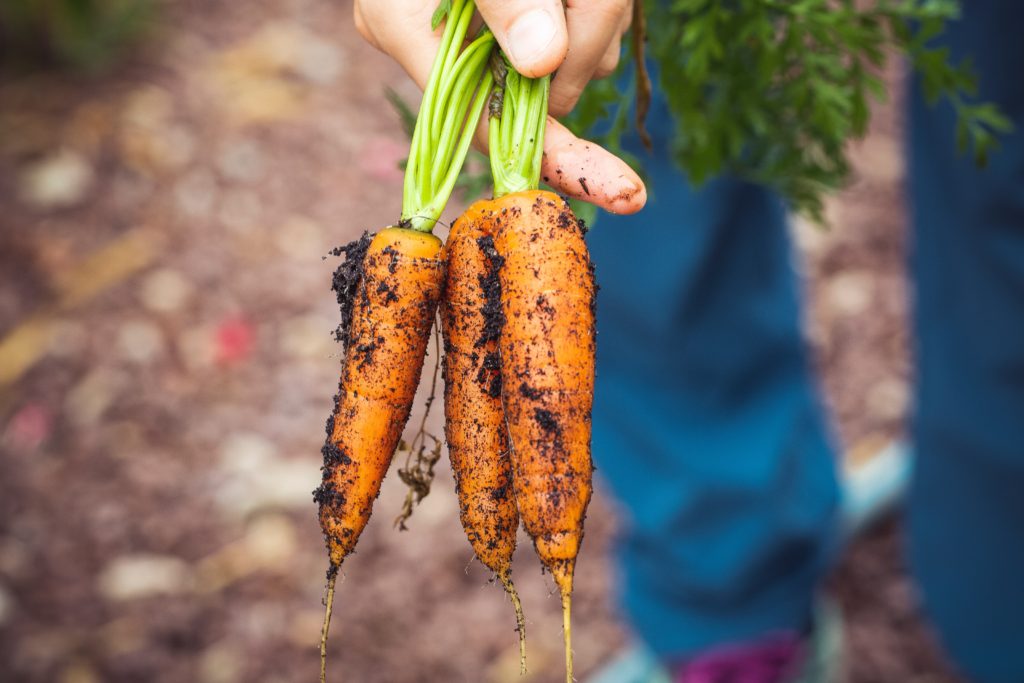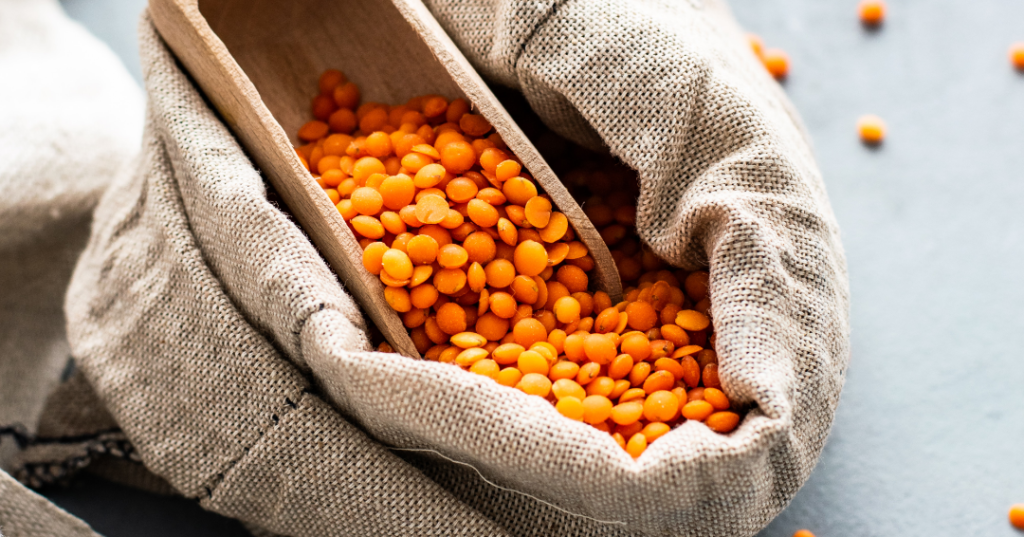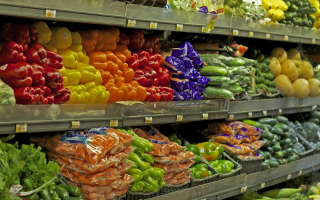For a very long time, our lives were based on convenience and cost. We are suffering the consequences of these choices today. We are now faced with environmental degradation, exploitation of resources, waste accumulation, extensive pollution, and adverse health conditions. The damage has reached such an extent that it is almost irreparable. At this stage, sustainability is not a choice but an immediate need. The concept of sustainability is all about meeting our needs in such a way that it has minimal impact on the environment and future generations. Every decision, from what we eat to what we wear has a profound effect on the planet and its ability to support life. So, it becomes necessary to adopt sustainable initiatives in all spheres of life.
Sustainability in the food industry is critical as it concerns not only the environment but our health as well. Excessive use of chemicals in agriculture, excessive use of resources and environmental problems related to rearing animals for food, food wastage, and plastic pollution are just some of the unsustainable practices that affect our planet.
Conscious customers are aware of these problems and their long-term implications. This has triggered the demand for sustainable food. Sustainable food refers to healthy food that satisfies nutrition requirements but is produced, used and disposed of with minimum impact on the planet and people. It also conforms to socially and economically fair practices.
As more consumers demand sustainable food, manufacturers are forced to respond to these demands. For their existence and survival, they must reassess existing processes and adopt sustainable initiatives. Through such long-term measures, we can expect to control, if not reverse the extensive damage that affects us today.
Here are some of the most popular sustainable food trends that will be huge in 2020.

Sustainable farming
Increasing demand for food has led to excessive use of natural resources and chemicals in agriculture. Although this has improved yield, it has also caused widespread environmental pollution and decreased soil fertility. The use of chemicals in farming greatly affects the health conditions of farmers as well as consumers. It also upsets ecological cycles and leads to the depletion of water resources.
Sustainable farming initiatives are eco-friendly processes that use resources judiciously and yet yield nutritious and healthy crops. These initiatives focus on green farming practices at all stages and reduce chemical use to a minimum. It involves innovative methods like rainwater collection for irrigation and integrated pest management. Thus, farmers can produce cleaner organic crops to meet consumer demands with minimum environmental impact. In the long term, sustainable farming helps to conserve natural resources and is economical.

Growing demand for Plant-based proteins
Did you know that animal farming is responsible for 20 to 50% of greenhouse gas emissions? Recent surveys reveal that the current generation is conscious of this fact and many of them eat less meat to combat this issue. However, it is equally important to obtain protein from alternate sources to stay healthy. This has led to the demand for plant-based proteins. More than 60% of millennials try to incorporate plant-based proteins like soy into their diets to lessen their meat consumption. According to Forbes, most consumers nowadays also prefer unprocessed foods in their diet. They seek sustainable and organic products and brands that focus on animal welfare.
Plant-based proteins beyond Soy
When we think of plant-based protein, soy is the first choice that enters our minds. While soy has dominated the plant-based protein scene for ages, the options do not end with it.
Innovative grain and lentil blends that mimic the texture of yogurt and creamy dairy products are in great demand. Plant-based amino acids can also be obtained from mung beans, hempseed, avocados, pumpkins, and golden chlorella. Seed butter is a good alternative for butter and creamy spreads.
Diversity of Foods for Health-conscious consumers
With health consciousness on the rise, lifestyle choices and food preferences have also drastically changed. Well-balanced diets have become a priority, with more people adjusting their eating habits to include fat-free, low-calorie, nutrition-dense foods. They are ready to explore new alternatives and consciously step away from conventional food choices for health reasons.
For instance, this market research report suggests that more consumers are turning to soy milk and almond milk over cow’s milk, which contains more calories.
By acknowledging this change in priorities, organizations like Sodexo and the WWF-UK have launched new menu lists with often-overlooked ingredients. This helps consumers find new ways of eating. It also raises awareness about alternate food solutions that are nutritious, economical, and sustainable from an environmental perspective.
Another sustainable innovation (that is expected to make baking more adventurous in 2020) is the use of interesting new flours instead of traditional flours. While these interesting fruit and vegetable flours will allow consumers to boost their baking experiments, they also have enough protein and fiber to be regarded as healthy ingredients.
Some of these ingredients, like teff flour, have been used in traditional dishes like Ethiopian injera for ages. Other alternatives like tigernut flour that is used in packaged snack foods and seed flour blends in pastries are relatively new on the scene but growing popular.
Zero Waste
As eco-consciousness grows, life with less waste is becoming a priority. “Recycle and reuse” is the mantra of the educated consumer. In a bid to reduce plastic use, single-use plastic bags are increasingly being frowned upon.
Most of us are already using eco-friendly reusable cotton mesh and net bags at grocery and convenience stores. However, more and more zero-waste practices are expected to become the norm in the future.
In low-waste swaps, polluting plastic and polyethylene-coated cups, boxes, and straws are already being swapped out for metal tumblers, water bottles, lunch boxes and even straws that will last a lifetime. Eco-friendly materials like bamboo cutlery, cloth food covers, and beeswax food wrap are quickly replacing plastic food wrapping and disposable utensils. Before we know it, compostable produce bags and less packaging will be the norm.
However, the idea of zero waste is complete only if it extends to businesses as well. As consumers increasingly demand zero-waste solutions, businesses are also quickly rising to the challenge.
Most companies manage waste via landfill. However, when they conform to the zero-waste concept, they will fully eliminate waste.
But we should understand that getting to zero waste for huge organizations is not easy. It can involve major changes to the whole business model. Despite this factor, industry icons like Procter and Gamble and Sears are pursuing this goal.
Here are some companies that have made significant strides in this regard.
Procter and Gamble: P&G aims to send zero waste to landfill in 2020. They have already achieved zero-waste in two-thirds of their operations. P&G’s Hungary Always team works with a local cement company to convert production scraps into bricks. Similarly, waste from their facility in China is composted and used as soil. In India, they modify scraps into materials that can be used in wall partitions.
Fetzer Vineyards: This large winery in Mendocino County, CA, aims to be net carbon positive by 2030. They have a platinum-level zero-waste certification from US Zero Waste Council. Fetzer operates on 100% renewable energy. Through efficient waste-management procedures, they clean and reuse wastewater.
New Belgium Brewing: As a leading name in zero-waste brewing, New Belgium Brewing is researching options to repurpose waste. Additionally, they have already adopted techniques to compost organic waste at their water treatment plant and keep even more waste out of landfill.
Sierra Nevada: This beer brewery keeps most of its waste out of landfills by repurposing their brewing ingredients into feed for local cattle farms. Their Chico, CA brewery converted almost 5000 tons of organic waste into usable compost with the first HotRot composting system in the U.S.
Top sustainable food trends of 2020 hold great promise and better hope for making our overall food system efficient and healthier.
Global environmental issues, conscious consumerism, and challenges faced by food producers are shaping sustainable initiatives in the food industry. While consumers are looking to improve their nutrition, they are also keen on embracing sustainable initiatives to minimize their impact on the future of the food industry.
At the fundamental level, sustainable farming practices are expected to improve the quality and health benefits of natural produce. Eco-friendly practices will also reduce our dependence on chemicals and aid in the conservation of natural resources. This should in turn uplift the quality of life of farmers.
Higher demands for plant-based proteins and the entry of new products like fruit and vegetable flours will add excitement to cooking and eating. Meanwhile, the demand for diverse types of products enhances the scope of introducing newer, healthier food options.
Finally, zero waste initiatives at the consumer and manufacturer level are expected to control, if not reverse, the extensive damage caused by wasteful food choices in the past.





